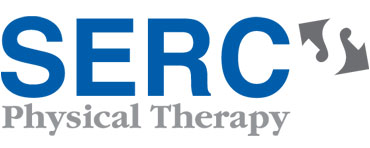Plantar Fasciitis
What is Plantar Fasciitis?
Plantar fasciitis is the most common cause of heel pain or bottom of the foot pain. It is the result of irritation of the plantar fascia, a thick band of tissue on the bottom of your foot that extends from the heel to the toes and helps to support the arch of the foot.
Common Causes of Plantar Fasciitis
Faulty foot biomechanics is ultimately the cause of most cases of plantar fasciitis. There are many contributing factors including:
- Age: most common between ages 40 – 60
- Activity: including running activities
- Obesity: especially in the case of rapid weight gain
- Improper/Poor Footwear
- Occupation: those requiring long hours of standing, especially on hard surfaces
- Tightness in calf and lower leg muscles
Symptoms of Plantar Fasciitis
- Pain in the heel and/or arch of the foot
- Pain that often develops slowly and is rarely related to trauma
- Pain associated with the first few steps in the morning or after a prolonged period of rest
- Pain occurring after prolonged standing or walking activities
How We Treat
In order to treat plantar fasciitis effectively, it is important to complete a thorough examination of the entire lower extremity. It is important that the clinician performing the exam have a good understanding of lower extremity, foot and ankle biomechanics, and gait analysis. Once the true cause is identified, a comprehensive treatment program can be initiated to reduce inflammation and improve faulty lower extremity biomechanics.
Treatment Options can Include:
- Joint Mobilization/Manual Therapy
- Proprioceptive/Gait Training
- Strengthening/Flexibility Exercises
- Home Exercise Program
- Anti-inflammatory Modalities (i.e. Ultrasound, Iontophoresis, Electrical Stimulation, Ice)
- Methods to Alter Faulty Mechanics (i.e. Taping, Orthotics)
- Education about Lifestyle Changes (i.e. Proper Shoes, Weight Management Program)
*Services are not available at all locations. Call or click the location page near you for that center’s services.
What to Expect
Every patient has a unique health history, diagnosis and personal goals. When you come for your first appointment, we will create a personalized treatment plan for you.
We work with most major insurance providers and do our best to help keep the paperwork pain-free. If you’d like to confirm your insurance coverage, please let us know and we can verify when you schedule. If your insurance provider requires a co-pay, we will ask for this payment at each visit. We accept payments by cash, check or credit card.
When to Arrive
On average, a patient’s first visit lasts about an hour. We typically ask patients to arrive 15 minutes early to sign-in, complete paperwork and/or change clothes.
What to Bring
On your first visit, you’ll need to bring your physician referral or prescription (if needed), your insurance card, your primary registration forms, your ID or driver’s license and your co-payment (as applicable). If desired, you may bring a change of clothing.
How it Works
During your first visit, your physical therapist will do an initial evaluation and discuss your plan of care. The therapist uses this information to set goals for your continued treatment. Physical therapy goals may include improved movement, strength, endurance and flexibility, as well as decreased pain. Your subsequent visits will focus on treatment that is based on your diagnosis and individualized goals.
